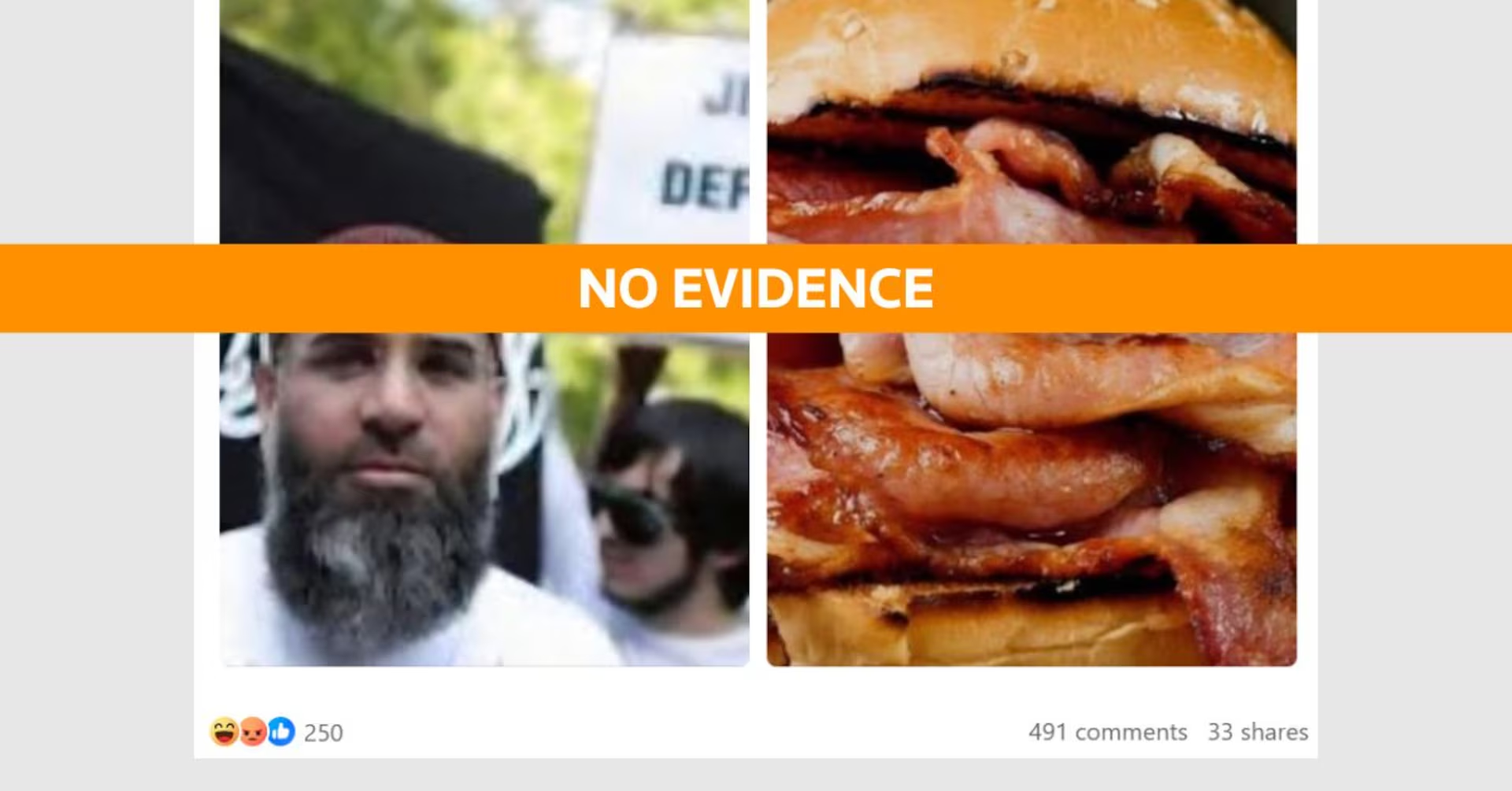Listen to the article
False claims that Muslims in the UK are calling for a ban on public eating during Ramadan have been thoroughly debunked by leading British Muslim organizations, according to a Reuters fact-check.
The misinformation spread widely across social media, with one Facebook post claiming: “Muslims in the UK are calling for a BAN of people eating in public during Ramadan daylight hours.” The post featured a composite image including radical Islamist preacher Anjem Choudary alongside a picture of a bacon sandwich, with text suggesting Muslims wanted the ban because “seeing people eating food increases their temptation.”
This false claim initially gained traction in May 2025, when an identical post received more than 8.5 million views on X (formerly Twitter), before resurfacing again in October. The post offers no source for its allegations, and fact-checkers found no evidence that UK Muslims, including Choudary, have ever advocated for such restrictions.
The Muslim Association of Britain, which represents thousands of British Muslims, dismissed the claim in unequivocal terms. A spokesperson stated: “There is absolutely no truth to the claim that Muslims in the UK are calling for a ban on people eating in public during Ramadan daylight hours.”
The spokesperson added that the claim is “the sort of nonsense that could only thrive on the internet – somewhere between flat earth theories and 5G mind control conspiracies,” confirming that “no Muslim organisation has ever made such a proposal.”
The Muslim Council of Britain, described as the UK’s largest Muslim umbrella organization, similarly rejected the claim. Their spokesperson emphasized: “Let us be clear: there is no truth to the claim that Muslims in the UK are calling for a ban on people eating in public during Ramadan daylight hours. The Muslim Council of Britain has not proposed such a policy, nor have we heard of any serious calls for it.”
The Council’s statement highlighted the harmful impact of such misinformation: “This is a classic example of misinformation that, while seemingly trivial, ends up consuming time and energy that could be spent on real issues affecting our communities. Stories like this add to the climate of hate and negativity directed at British Muslims and can be exhausting, but we have a duty to set the record straight.”
The image of Anjem Choudary used in the misleading posts was taken in London in 2011, according to Getty Images. Choudary was later jailed for life for terrorism offenses in 2024. It’s worth noting that bacon, which was prominently featured in the composite image, is forbidden under Islamic dietary laws.
Ramadan, the ninth month of the Islamic calendar, is a holy period when Muslims abstain from eating and drinking from dawn until sunset. Its precise timing varies each year; in 2026, it is expected to begin in mid-February.
This incident illustrates a growing pattern of targeted misinformation aimed at religious and ethnic minorities in the UK and elsewhere. False claims that misrepresent religious practices often gain significant traction on social media platforms, potentially fueling intercommunity tensions and reinforcing negative stereotypes.
Fact-checking organizations continue to play a crucial role in identifying and correcting such misinformation before it can cause lasting damage to community relations.
Fact Checker
Verify the accuracy of this article using The Disinformation Commission analysis and real-time sources.




7 Comments
Kudos to the fact-checkers for taking the time to thoroughly investigate this claim and set the record straight. Spreading unsubstantiated accusations, especially against religious or ethnic groups, is extremely irresponsible and can have serious consequences. Diligent verification is crucial to combat the scourge of online misinformation.
I’m glad the Muslim Association of Britain was able to clearly dismiss this baseless allegation. Spreading unfounded accusations about religious groups only serves to promote division and intolerance. Fact-checking and getting input from credible community leaders is important for maintaining an informed, inclusive public dialogue.
Misinformation can be so pervasive and harmful, especially when it targets minority groups. It’s reassuring to see this claim thoroughly debunked through proper journalistic investigation. Upholding truth and rejecting falsehoods is essential for a healthy, cohesive society.
This is a prime example of how misinformation can quickly spiral out of control on social media. I’m glad to see the claim about Muslims advocating for a public eating ban thoroughly debunked through proper fact-checking. It’s a good reminder of the importance of critical thinking and verifying information before sharing it online.
This case highlights the vital role of responsible journalism and fact-checking in countering the spread of misinformation. It’s reassuring to see the Muslim Association of Britain clearly dismiss this baseless claim. Promoting truth and rejecting falsehoods is crucial for fostering a cohesive, tolerant society.
This is a concerning case of misinformation spreading quickly on social media. It’s good to see fact-checkers thoroughly debunking these false claims about Muslims advocating for a public eating ban during Ramadan. Responsible reporting and verification is crucial to counter the spread of disinformation.
Fact-checking is so important in today’s information landscape, where false claims can spread like wildfire on social media. I’m glad to see this particular allegation against Muslims in the UK comprehensively disproven. Maintaining an informed, inclusive public discourse requires rejecting unsubstantiated accusations and upholding the truth.